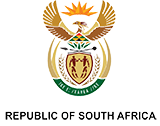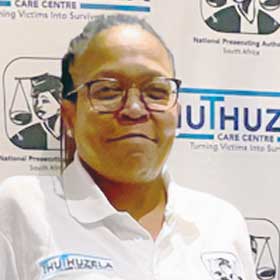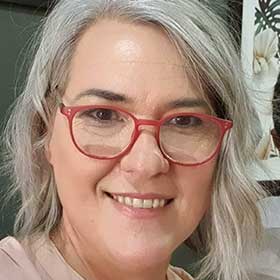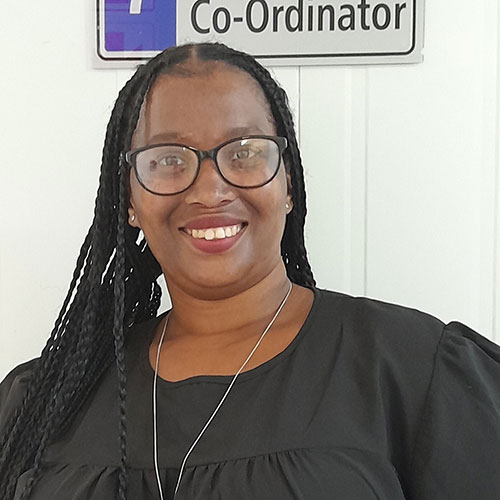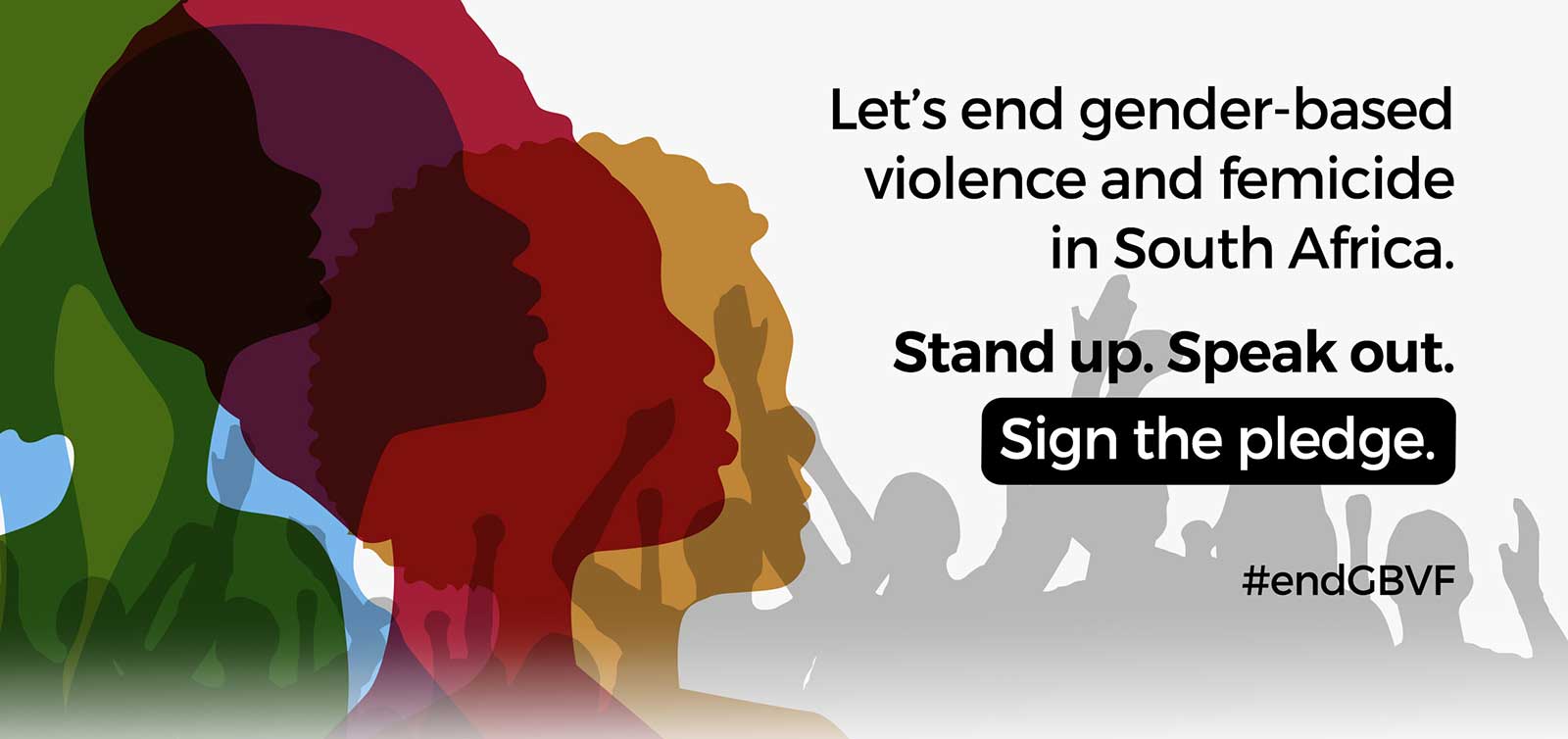Gender-based violence
Government continues to intensify its fight against gender-based violence and femicide (GBVF), which President Cyril Ramaphosa has described as the country’s ‘second pandemic’.
The NPA has played an critical role in terms of prosecuting GBV cases and being the voice of vulnerable groups.
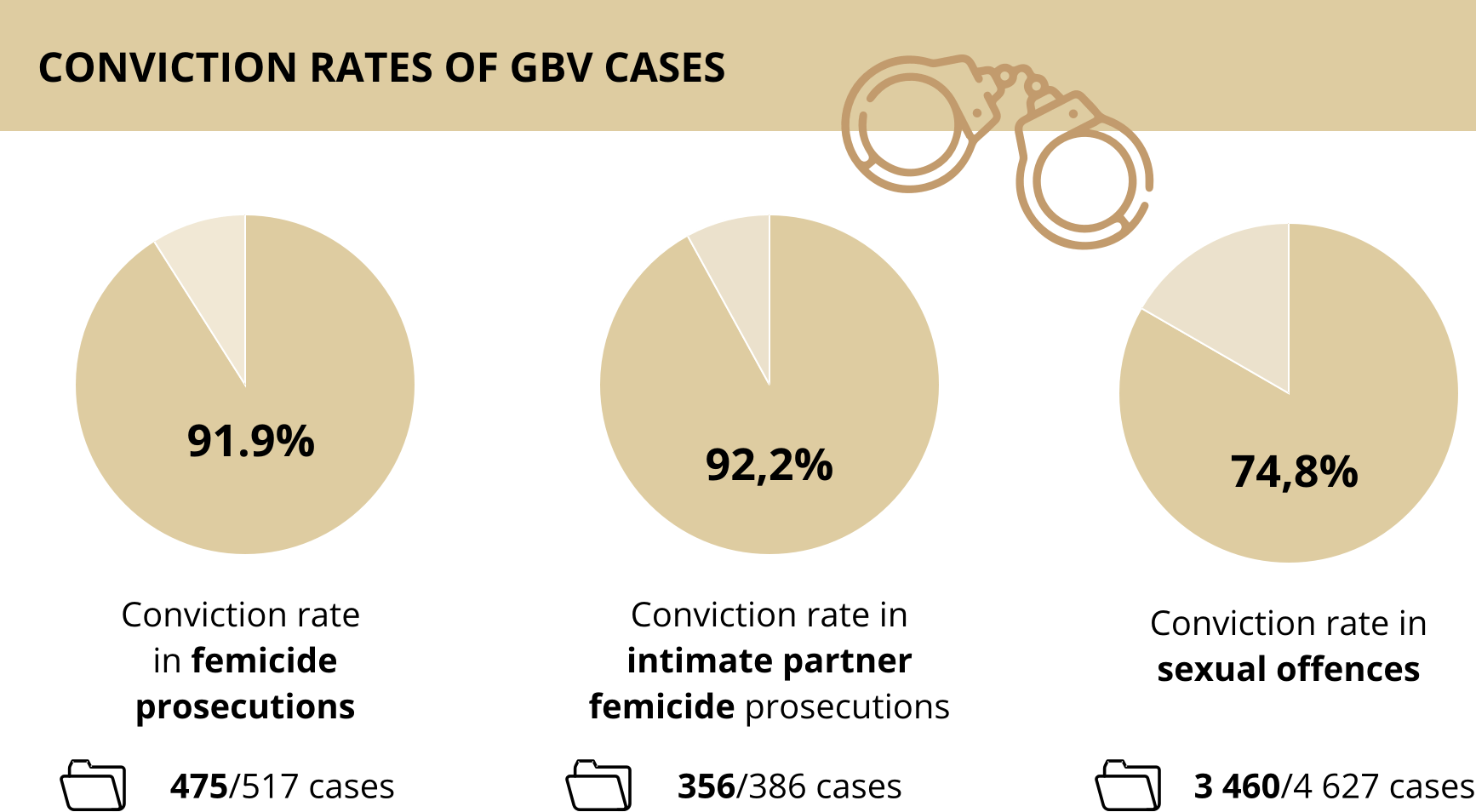
The National Strategic Plan on GBVF
The National Strategic Plan on GBVF is the government's comprehensive strategy for tackling all forms of violence and abuse against women and children. Since the launch of the strategic plan in 2020, several new interventions have been implemented.
- Extensive legal reform
- Support for survivors through the provision of evidence kits at police stations
- Psychological and social services
- The establishment of a GBVF Response Fund
- Support for Thuthuzela and Khuseleka Care Centres, which provide vital services for GBV survivors
Around R21 billion has been dedicated over the medium-term to the implementation of the six pillars of the plan, including the economic empowerment of women.
Private-Sector GBVF Response Fund
The GBVF Response Fund was launched by President Cyril Ramaphosa together with the International Women’s Forum of South Africa in February 2021 to address the high levels of GBVF in South Africa.
Since then, around R162 million has been pledged to the fund, with 75% of this amount already collected.
R150 million
Pledged
R69 million
Distributed
110
Community organisations benefitted

New Legislation to fight GBV
Government has introduced new laws to protect women and children in South Africa from abuse and violence.
The National Council on Gender-Based Violence and Femicide Bill was signed into law on 24 May 2024.
This landmark legislation is a critical step forward in ensuring the safety and protection of women and children from abuse and violence.
The new legislation facilitates the establishment of the council, a statutory body charged with providing strategic leadership in the fight against gender-based violence and femicide in South Africa.
This multi-sectoral council will draw on the expertise of all stakeholders which includes civil society, labour and business, to further strengthen national efforts to combat gender-based violence, using a more inclusive, focused and better resourced approach.
The National Council on Gender-Based Violence and Femicide Act
-
Establishes the National Council on Gender-Based Violence and Femicide
-
Provides for the objects and functions of the Council including:
- The appointment of the Board of the Council.
- The establishment of committees of the Board.
- The establishment of norms and standards for the provincial and local working groups.
- The making of regulations.
Criminal Law (Sexual Offences and Related Matters) Amendment Act Amendment Bill
Expands the definition of incest
Introduces a new offence of sexual intimidation
Further regulates the National Register for Sex Offenders
Regulates the reporting duties of people who are aware that sexual offences have been committed
Criminal Law (Forensic Procedures) Amendment Bill
Introduces mandatory DNA collection for certain crimes
DNA to be taken from people convicted for schedule 8 offences – rape, murder, human trafficking, robbery and culpable homicide
Domestic Violence Amendment Bill
Expands the definition of domestic violence to include actions such as controlling or bullying behaviour
Makes provisions for protecting people in engagements, dating and in customary relationships
Further regulates protection orders in response to domestic violence
Criminal and Related Matters Amendment Bill
Amends various laws that address GBV and offences committed against vulnerable people
Provides for additional procedures to reduce secondary victimisation of vulnerable people in court proceedings
Programmes and policies that promote women’s financial independence are critical to reducing the rates of GBVF. Find out more about what the government is doing to support women-owned SMMEs, women entrepreneurs and more.

Dedicated GBV desks
Government is making progress in establishing dedicated desks at police stations in GBVF hotspots. The desks are staffed by police officers who are specifically trained to provide victim-centred assistance and support.
There are now 134 desks in operation and the goal is to have a GBV desk in all police stations countrywide.
Call the 24-hour GBV helpline on 0800 428 428 if you or someone you know needs assistance. You can also SMS HELP to 31531.
THUTHUZELA CARE CENTRES
As part of government’s anti-rape strategy, Thuthuzela Care Centres (TCCs) were introduced in response to the urgent need for a multi-level approach to the prevention, response and support for rape victims. There are currently 63 centres across the country.
TCCs are led by the NPA’s Sexual Offences and Community Affairs Unit (SOCA) and partnered with various departments and donors.
The SOCA Unit’s best practices and policies seek to eradicate victimisation of women and children, while improving prosecution, especially pertaining to sexual offences, maintenance, child justice and domestic violence.
TCCs are one-stop facilities that offer the following services:
• Medical examination
• Bath or shower facilities for victim use
• Allocation to investigating officer to take a statement
• A social worker to offer counselling
• Follow-up visits, treatment and medication for Sexually Transmitted Infections (STIs), HIV and AIDS
• Transportation home by an ambulance or the investigating officer
• Arrangements for the survivor to go to a place of safety, if necessary
• Consultations with a specialist prosecutor before the case go to court
• Court preparation by a victim assistant officer
• An explanation of the outcome and update of the trial process by a case manager
In the media
Call for a review of National Strategic Plan on GBVF
South African children have reiterated a call for the review of the National Strategic Plan on Gender-Based Violence and Femicide (NSP-GBVF).
www.sanews.gov.za
A pandemic within a pandemic: Policy responses to gender-based violence (GBV)
In 2020, the South African government launched a ten-year National Strategic Plan on Gender-based Violence and Femicide (NSP-GBVF). In the preface, South African President, Cyril Ramaphosa stated: “The unacceptably high levels of gender-based violence and femicide in South Africa are a blight on our national conscience, and a betrayal of our constitutional order for which so many fought, and for which so many gave their lives...
Human Sciences Research Council (HSRC)
THE FIRST SOUTH AFRICAN NATIONAL GENDER BASED VIOLENCE STUDY
Government has recognised that gender based violence (GBV) is a ‘national crisis’ and a ‘second pandemic’ that is a serious human rights abuse affecting all sectors of society. GBV is a widespread and entrenched socio-economic problem that stems from an unequal distribution of power and privilege between men and women.
To accurately determine the prevalence and incidence of GBV, the Human Sciences Research Council (HSRC) and its collaborators conducted a national study in all nine provinces, aimed at assessing the prevalence, extent and nature of GBV and its impact across the country.
The aims and objectives of the study were:
- To determine factors associated with GBV. victimisation and perpetration
- To measure responses to experiences of GBV and the health and economic impacts of GBV among those who are victimised.
- To describe the prevalence and patterns of perpetration of physical, sexual, emotional and economic GBV among men from all provinces in South Africa.
- To determine the extent of experiences and perpetration of GBV attributed to the COVID-19 pandemic and the lockdown period.
The report released in 2022, provides new evidence and testimony of the patterns of violence against women in the country. The findings contribute to a better understanding of the course leading to victimisation and perpetration in South Africa. This study represents a step forward in providing a vital source of evidence-based research on GBV in South Africa.
Read the compelling research findings here:
FACT SHEETS
The prevalence of GBV in South Africa demands a call to action to end the scourge of violence against women.
The facts speak for themselves.
